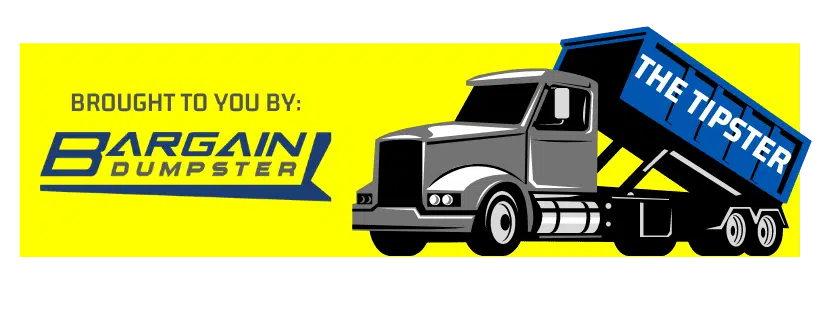6 Steps to Help a Hoarder
There’s a cluttered house, and then there’s a hoarder’s house. A hoarder is typically someone who collects massive amounts of things that hold little value, like old magazines, packets of sauces, or a random assortment of other junk. Eventually, these items pile up so much that it’s hard to function in their living space – it’s impossible to walk down the hallway because of the junk, or their tub has become another storage container.
Despite the danger or hazardous conditions, a hoarder won’t let go of these things or throw them out because it’s simply too painful to do so. They become emotionally attached to the things that have filled their home.
Hoarding disorder was named as a mental illness in 2013. While only 2-5% of the population is officially diagnosed with this condition, it may still affect someone you love. If there is someone in your life that struggles with hoarding, here are six ways to help them work through their hoarder’s tendencies.
Focus on Them, Not Their Stuff
It might be tempting to swoop in with garbage bags, shovels, and professional junk removal teams and just clear it all out yourself. While this would effectively remove the stuff from their house, it’s incredibly violating towards your loved one!
Even once the junk is gone, the hoarding tendencies are still there in the mind of the person struggling. They will go right back to accumulating belongings to fill their space again!
Have an open dialogue with the person struggling. Make sure they are willing to embark on this journey with you before you even touch their stuff. Addressing the mental health and behavior of your loved one will help them make long-term progress and resolve the hoarding for good.
Small Victories Call for Big Celebration
Once you’ve had the necessary discussions and your loved one is on board with making changes, you still have to exercise some restraint. Don’t schedule a giant cleanup day and expect to gut out the whole house in one weekend. Instead, set small goals and take time to celebrate when you reach those goals.
Setting small goals looks different for everyone. Maybe encourage your loved one to focus on one area to clear out in a day – a drawer, a container, or even a small room. If this is still too much, work with them to discard one item per day. It may take a few hours to scrap a single thing, which will be exhausting for both of you.
Be patient and understanding. Then celebrate their progress, no matter how small! Working to achieve small, manageable goals will help your loved one to gain momentum, confidence, and pride.
Photo by Eli Francis on Unsplash
Allow Them to Feel in Control
When the going is slow, it can be hard to resist taking over and just doing it yourself. This is the last thing you want to do! Your loved one may feel betrayed, resentful, and will react out of fear of losing that control. You will end up right back at square one.
Rather than taking control for yourself, relinquish most of the power to your loved one. Ask them how you can be most helpful, rather than determining that yourself. Work together to set guidelines and boundaries – for both of you. This shows respect between each other and also prevents you from getting in over your head. It keeps a healthy balance so that you can provide adequate support.
Photo by Andrea Piacquadio from Pexels
Don’t Take Their Belongings
While this could be considered taking control, this needs to be stated outright on its own! Don’t go behind your loved one’s back and start filling trash bags when they aren’t watching. Not only is this detrimental to addressing the root of their issue, but it could also be harmful to your relationship as well.
People who hoard experience extreme levels of emotional distress when their possessions are taken from them. If they catch you sneaking their “junk” out of the house without their knowledge, it could cause serious harm to them, both mentally and physically.
Any time you remove items from their home, ALWAYS do so with your loved one’s knowledge and approval.
Get it Sorted
There may be a lot of stuff to sort through in your loved one’s home. To help make sense of it all (for both of you) work with them to sort their items into piles outside: Keep, Donate, Throw Away. This will help your loved one by giving them a clear vision of what things are staying and what items are leaving their home.
Some professional organizers specialize in hoarding, and they can help you get started with this organization system. They will help you and your loved one work through the sorting process and keep you all on track. If the process seems too daunting for you totake on alone, consider hiring a pro organizer to provide guidance and back you up.
Help Them Find Treatment
It can be overwhelming for both you and your loved one to address hoarding tendencies and face a possible diagnosis. And it’s completely natural to feel overwhelmed! There is no shame in feeling this way. But finding a qualified therapist to help your loved one work through these emotions will help them immensely in their journey.
Several therapists specialize in hoarding disorders and hoarding tendencies. They will work with you and your loved one to address the root cause of their hoarding and help them to make progress towards a healthier way of life.
Helping your loved one work through their hoarding tendencies is no easy task – but it WILL be worth it in the end! With love, patience, and a little bit of elbow grease, their quality of life can drastically improve.
Let us help them get there, too. Bargain Dumpsters is here to provide the best waste removal services at an affordable price. We can take that burden from your shoulders so you can focus on what truly matters – helping your loved one live their life to the fullest.



 Photo by
Photo by 